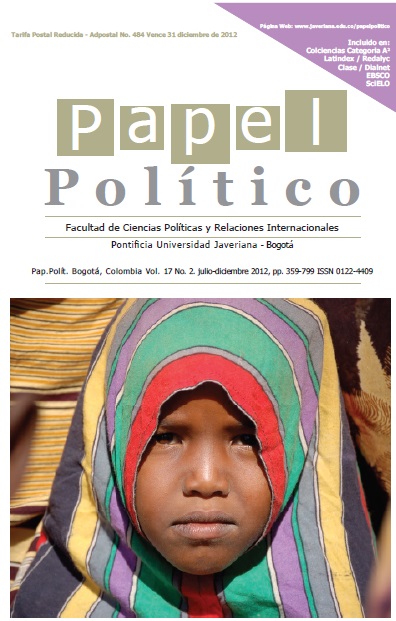Abstract
La transformación de la matriz energética de Brasil en los últimos años ha sido fundamental para lograr la consolidación de su seguridad energética. Sin embargo, los objetivos de potencia regional, el crecimiento económico ypoblacional y el mejoramiento en el ingreso per cápita presentan un panorama donde, a pesar de la autosuficiencia, Brasil requiere de la internacionalización de su política energética en Suramérica, para obtener los recursos que se
demandarán en las próximas décadas, que faciliten su avance internacional y su sostenibilidad productiva de largo plazo. Para esto, la articulación diplomática público-privado con Petrobras y BNDES es esencial, debido a que conecta el interés nacional con la diplomacia económica y corporativa y, a su vez, impulsa una integración energética regional que facilita la generación de
economías de escala, el comercio intrarregional y la creación de una industria energética y eléctrica con valor agregado.
This journal is registered under a Creative Commons Attribution 4.0 International Public License. Thus, this work may be reproduced, distributed, and publicly shared in digital format, as long as the names of the authors and Pontificia Universidad Javeriana are acknowledged. Others are allowed to quote, adapt, transform, auto-archive, republish, and create based on this material, for any purpose (even commercial ones), provided the authorship is duly acknowledged, a link to the original work is provided, and it is specified if changes have been made. Pontificia Universidad Javeriana does not hold the rights of published works and the authors are solely responsible for the contents of their works; they keep the moral, intellectual, privacy, and publicity rights.
Approving the intervention of the work (review, copy-editing, translation, layout) and the following outreach, are granted through an use license and not through an assignment of rights. This means the journal and Pontificia Universidad Javeriana cannot be held responsible for any ethical malpractice by the authors. As a consequence of the protection granted by the use license, the journal is not required to publish recantations or modify information already published, unless the errata stems from the editorial management process. Publishing contents in this journal does not generate royalties for contributors.


